Discovering Divine Threads: Yoga and Hindu Deities
Embark on a spiritual journey as we unravel the sacred connection between yoga and Hindu deities. This article compiles 29 key points, each unveiling the profound relevance of gods like Brahma, Vishnu, Shiva, and goddesses such as Lakshmi and Saraswati to the practice of yoga. Whether you’re a seasoned yogi or a newcomer, join us in exploring the deep-seated links between physical postures and metaphysical realms, immersing yourself in the wisdom of ancient traditions. Get ready to experience the harmonious dance of mind, body, and spirit at the heart of yoga’s divine tradition.
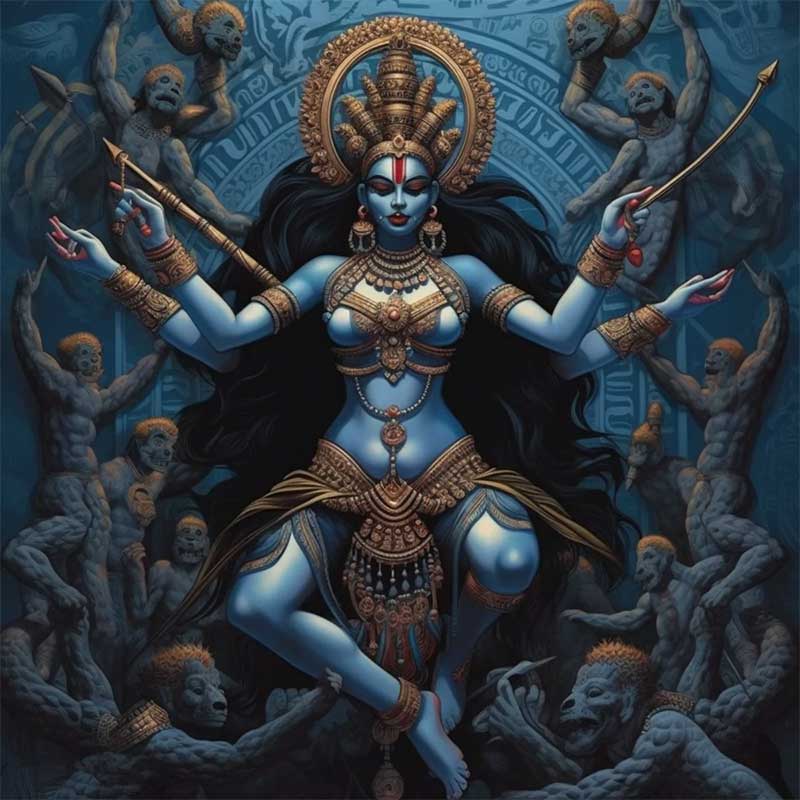
Brahma:
• The creator of the universe in the Hindu
trinity (Trimurti).
• Symbolizes creation and evolution,
representing the initial phase of the life cycle.
Vishnu:
• The preserver of the universe.
• Incarnated in various forms like Rama and
Krishna.
• Represents stability and balance.
Shiva:
• The destroyer in the Hindu trinity.
• Symbolizes dissolution to allow for
regeneration.
• Associated with meditation, tranquility, and
detachment.

Ganesh:
• The god with an elephant head, son of Shiva
and Parvati.
Represents wisdom, knowledge, and the
removal of obstacles.
• Often invoked at the beginning of new
endeavors and spiritual practices, including
yoga.
Parvati:
• Shiva’s consort, goddess of feminine power.
• Symbolizes the balance between the
feminine and masculine aspects.
Lakshmi:
• Goddess of wealth, prosperity, and fortune.
• Associated with beauty and generosity.
• Meditating on Lakshmi can enhance
gratitude and abundance.
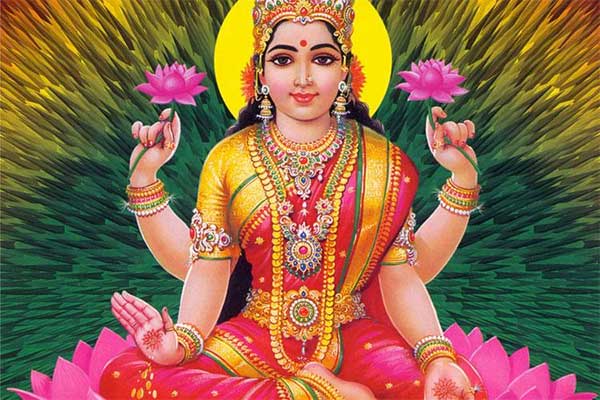
Saraswati:
• Goddess of knowledge, art, and music.
• Symbolizes creativity, wisdom, and learning.
• Meditation on Saraswati can improve
concentration and creativity in yoga practice.
Hanuman:
• The faithful devotee of Rama. known for
strength and devotion.
Represents power, loyalty, and selfless
service.
Durga:
• Goddess of strength and protection.
• Often revered for overcoming obstacles and
challenges.
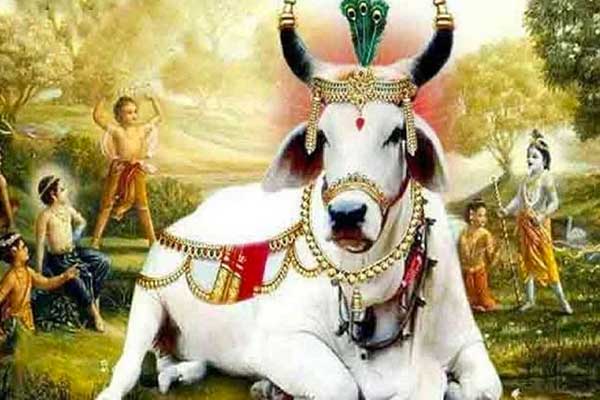
Krishna:
• Incarnation of Vishnu, the central figure in the
Bhagavad Gita.
• Teaches yogic principles such as detachment
and duty.
Radha:
• Iconic figure of divine love with Krishna.
• Symbolizes devotion and union with the
divine.
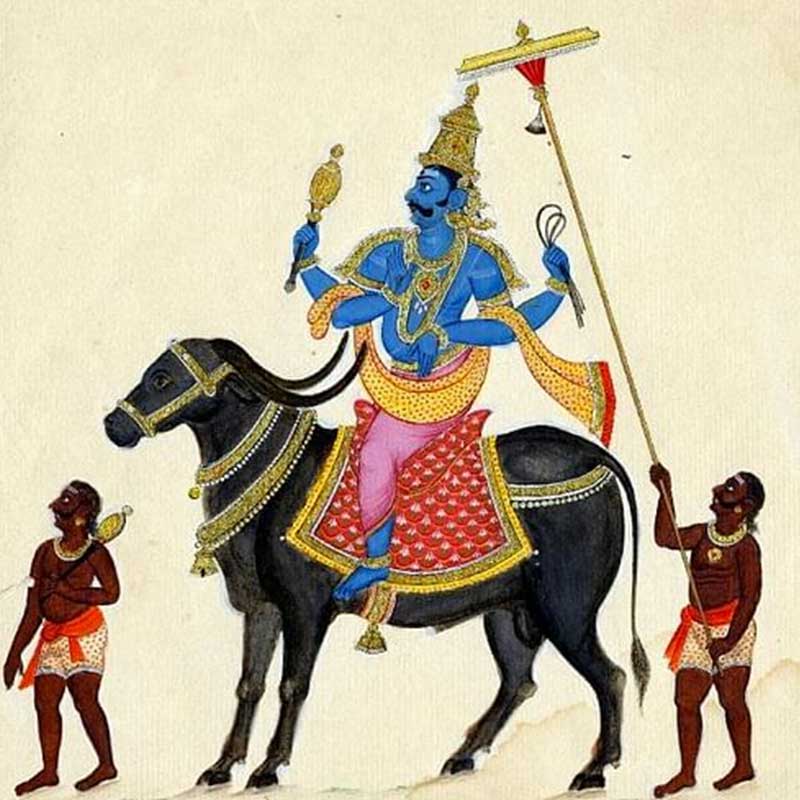
Yama:
• God of death and moral control.
• His role in yoga is often associated with
discipline and self-mastery.
Nataraja (Shiva as the cosmic dancer):
• Represents the eternal cycle of creation,
preservation, and dissolution.
• Symbolizes movement and celestial dance.
Kali:
• Goddess of the destruction of evil and
ignorance.
Often venerated for strength and the ability
to overcome inner darkness.
Agni:
• God of fire and sacrifice.
• Symbolizes purification and transformation.
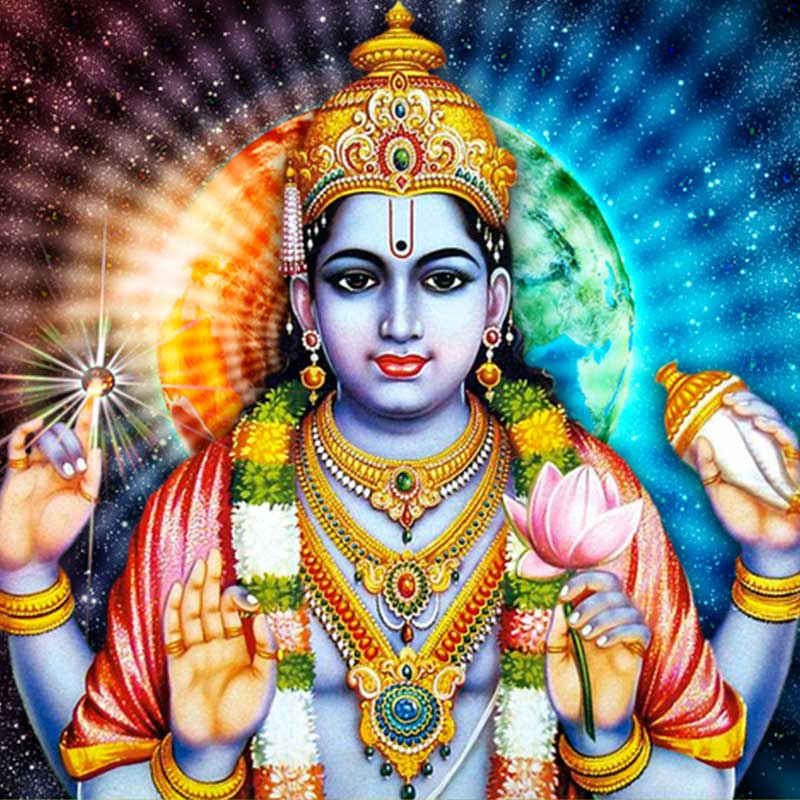
Varuna:
• God of cosmic order and justice.
• His aspect emphasizes the importance of
order in yoga practice.
Vayu:
• God of wind and breath.
• The significance of conscious breathing
(pranayama) in yoga.
Bhumi:
• Goddess of Earth.
• Reminds of the connection with nature in
yoga practice.
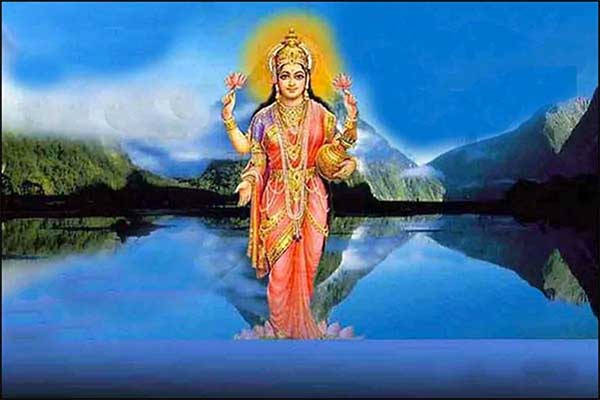
Surya:
• God of the sun.
• The Sun Salutation (Surya Namaskar) is a
yogic practice dedicated to Surva.
Chandra:
• God of the moon.
• The moon is often associated with yoga,
especially meditation.
Indra:
• King of gods, god of rain and thunder.
• Symbolizes power and inner strength.
Ganga:
• Goddess of the Ganges.
• Purification through water is a common
theme in yoga, connecting to the goddess
Ganga.
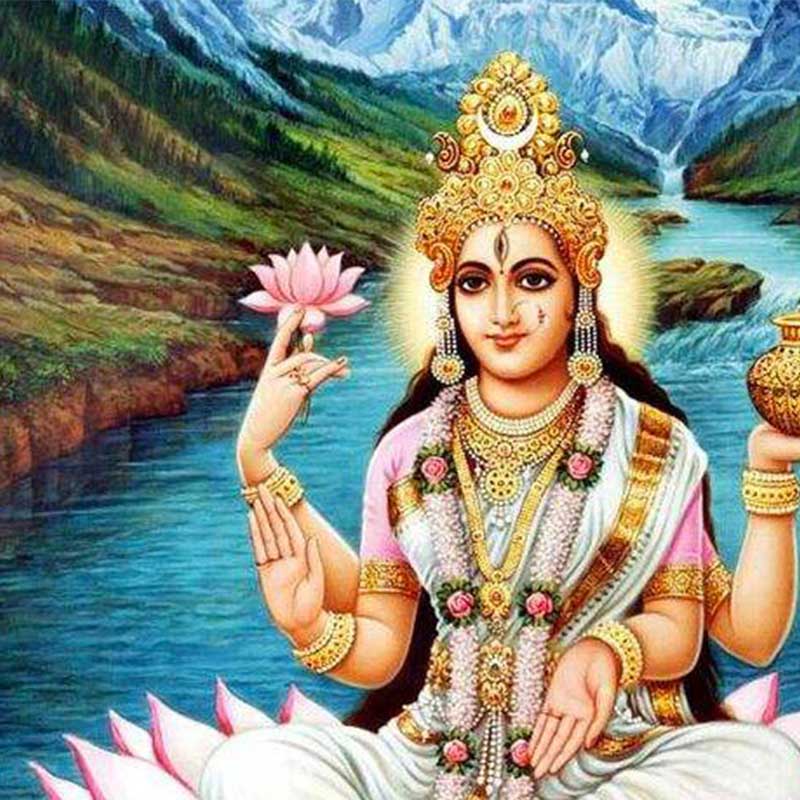
Apsaras:
• Celestial dancers.
• Symbolize beauty, elegance, and harmony-
qualities often sought in yoga practice.
Rishi:
• Sages or saints.
• Emphasizes the importance of studying
sacred texts and seeking truth
Manu:
• Mythical legislator.
• Highlights the importance of following
ethical rules (yamas and niyamas) in yoga
practice.
Guru:
• Spiritual guide.
• The relationship with a guru is often
considered crucial in the spiritual progression
of yoga.
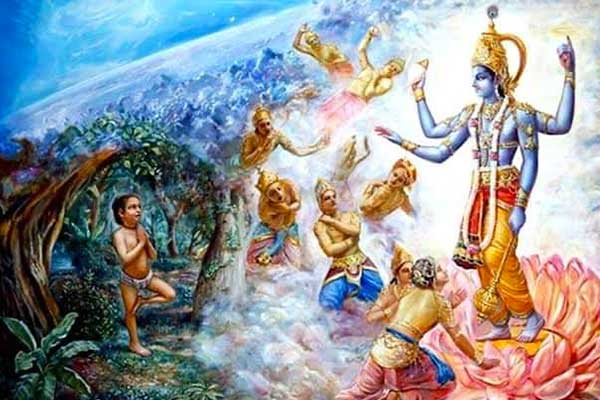
Dhruva:
• A young prince who becomes a great
devotee.
• His story inspires perseverance and
determination in yogic practice.
Nandi:
• The bull. Shiva’s vehicle.
• Symbolizes strength and loyalty, qualities
encouraged in yoga practice.
Bhakti:
• The concept of devotion.
• The importance of bhakti yoga (the path of
devotion) in overall yoga practice.
Ashtanga journey
Embarking on the Ashtanga Journey: A Comprehensive Guide to Transformative Yoga PracticeWelcome to the world of Ashtanga Yoga! If you're curious about yoga that goes beyond just stretching, you're in the right place. In this guide, we'll take you on a journey through...
Yoga and Mindfulness
Exploring Yoga and MindfulnessExploring Yoga & Mindfulness Welcome, fellow seekers of serenity and balance! In the harmonious realm where ancient wisdom intertwines with contemporary mindfulness, we embark on a transformative exploration of Yoga and Mindfulness....
10-reasons-to-attend-an-aerial-yoga-teacher-training
10 Reasons to attend an Aerial Yoga Teacher TrainingSoaring to New Heights: 10 Reasons to Attend an Aerial Yoga Teacher Training In the ever-evolving fitness and wellness landscape, Aerial Yoga has emerged as a captivating and transformative practice. Becoming an...
10 reasons to attend a yin yoga teacher training
10 Reasons to attend a Yin Yoga Teacher TrainingUnlocking the Tranquil Path: The Benefits for Yoga Teachers to Become Yin Yoga Instructors In the dynamic world of yoga instruction, the transformative journey towards becoming a Yin Yoga teacher unfolds a tapestry of...
Yoga Teacher Training Nusa Lembongan
Embark on Your Yoga Journey in Paradise: The Ultimate Guide to Yoga Teacher Training in Nusa LembonganWelcome to Paradise: Yoga Teacher Training in Nusa Lembongan Are you ready to take your yoga practice to the next level? Picture yourself on a pristine island...
The Chakra system
The Chakra system Welcome to the captivating world of chakras! The chakra system, deeply rooted in Eastern spirituality, is a profound and intricate concept representing energy centers within our bodies. These centers are integral to our physical, emotional, and...






